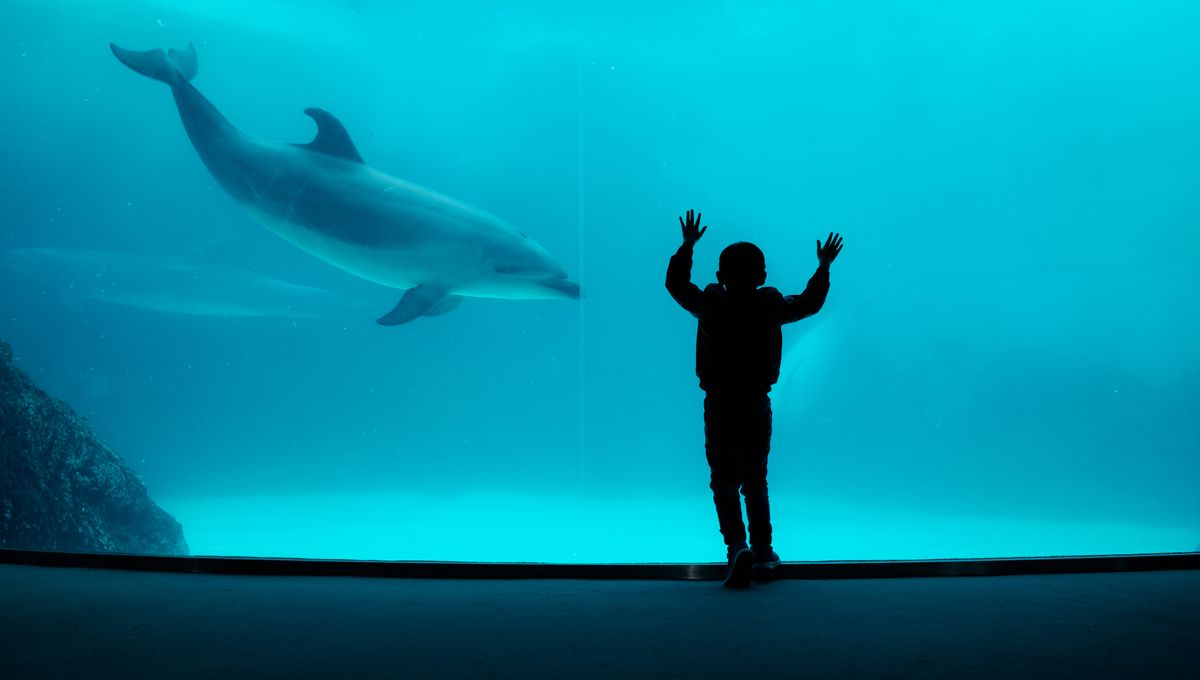
Marine mammals, particularly orcas, underwent something of a tidal wave change in public opinion after the 2013 documentary film Blackfish was released. Foremost in that film was the story of Tilikum the orca, who killed several people while at SeaWorld. Tilikum died in 2017, but the outrage and animal welfare concerns sparked by the film persisted. Now, 10 years after the release of the documentary, we explore whether welfare standards have changed for orcas and other large marine mammals in parks, aquariums, and zoos around the world.
What does the law say?
Tilikum lived at SeaWorld from 1991 until his death, during which time he fathered 21 captive-bred orca calves and participated in countless live orca performances. After the release of the documentary, SeaWorld promised to build bigger enclosures and ceased its live shows, as well as its captive orca breeding program after the practice was banned under a new law. as well as their live shows which is also now law.
However, there are other marine mammals to consider. Seals, dolphins, and other whale species are still part of many zoo collections – has the effect of the documentary had a knock-on benefit to the lives of these other marine creatures?
While the UK has remained dolphin-free for 30 years, there is no outright ban on the keeping of these animals within captivity. “People are often mistaken in believing that the UK has banned the display of captive cetaceans, but this is not the case,” said Marine Connection co-founder Margaux Dodds on the charity’s website. “It is not currently illegal to display dolphins here.”
Some have felt pressure to release captive animals back into the wild, with others even suggesting that captive dolphins could be replaced with robotic ones.
Good news
A recent study looked at four marine species, including common bottlenose dolphins, harbour seals, Californian sea lions, and polar bears held in zoos between 1829 and 2020. These species were chosen because the records included information for each species on at least 100 individuals per sex for each of the three time periods and species and are the four marine species most represented in zoos and parks across the world.
The study found two large improvements in the life metrics of these animals. First, the results showed that first-year mortality declined up to 31 percent during the last 100 years in zoos. The study also found that, on average, the life expectancy of animals in zoos is between 1.65 to 3.55 times longer than that of animals in the wild.
First author of the study and Species360 Science Team Leader Dr Morgane Tidière explained to IFLScience which factors have led to the improvement in animal care for these species.
“The advancements in the care of marine mammals within zoological facilities over the past century have encompassed a broad and diverse range of husbandry practices. Notably, the adoption of enhanced knowledge-sharing mechanisms among experts has played a pivotal role.”
Alongside the sharing of knowledge between zoos and parks, have come technological advancements. Lift-up floors built into the bottoms of marine mammal pools have allowed greater veterinary action to take place, a significant development for dolphins. Further to this, voluntary participation in medical training has been able to reduce stress on the animals during health checkups.
“These measures collectively signify the concerted efforts to prioritize the well-being and longevity of marine mammals in zoos and aquariums through thoughtful and innovative husbandry practices,” continued Tidière.
Moving forward
While a change in public opinion might have been the driving force behind these changes, Tidiere stressed that we must not project human ideas of what a happy animal looks like onto these marine mammals and instead focus on making science-based decisions to ensure the welfare of each animal.
“It is imperative to rely on scientific evidence rather than projecting human emotions onto these species. This approach allows for an objective evaluation of their needs, thus facilitating the establishment of appropriate welfare standards. By prioritizing a scientific approach, we can ensure that our actions are guided by an informed understanding, promoting the best possible living conditions for these wild animals living in zoological facilities.”
The results of the study are promising, but primarily reflect the average welfare of the marine mammals that are part of the Species 360 network and use the Zoological Information Management System (ZIMs) software.
“Many zoological institutions are doing an amazing job caring for their animals but there are also many zoological institutions that do not meet the standards set by zoological accrediting bodies and need to improve their practices.”
The study also explored using life expectancy and lifespan equality as a proxy for population welfare, and the distinction between population welfare and individual welfare is important. This shows not only that the animals are living longer, but also that they are living better, as Tidière explained.
“In order for the majority of individuals in a population to live longer, and see an increase in both life expectancy and lifespan equality for the entire population it would require a significant improvement in the quality of the environmental conditions the population is living in. Therefore, the species studied are living longer and better lives.”
The study is published in Proceedings of the Royal Society B.
Source Link: Has Welfare For Marine Mammals In Zoos Improved?